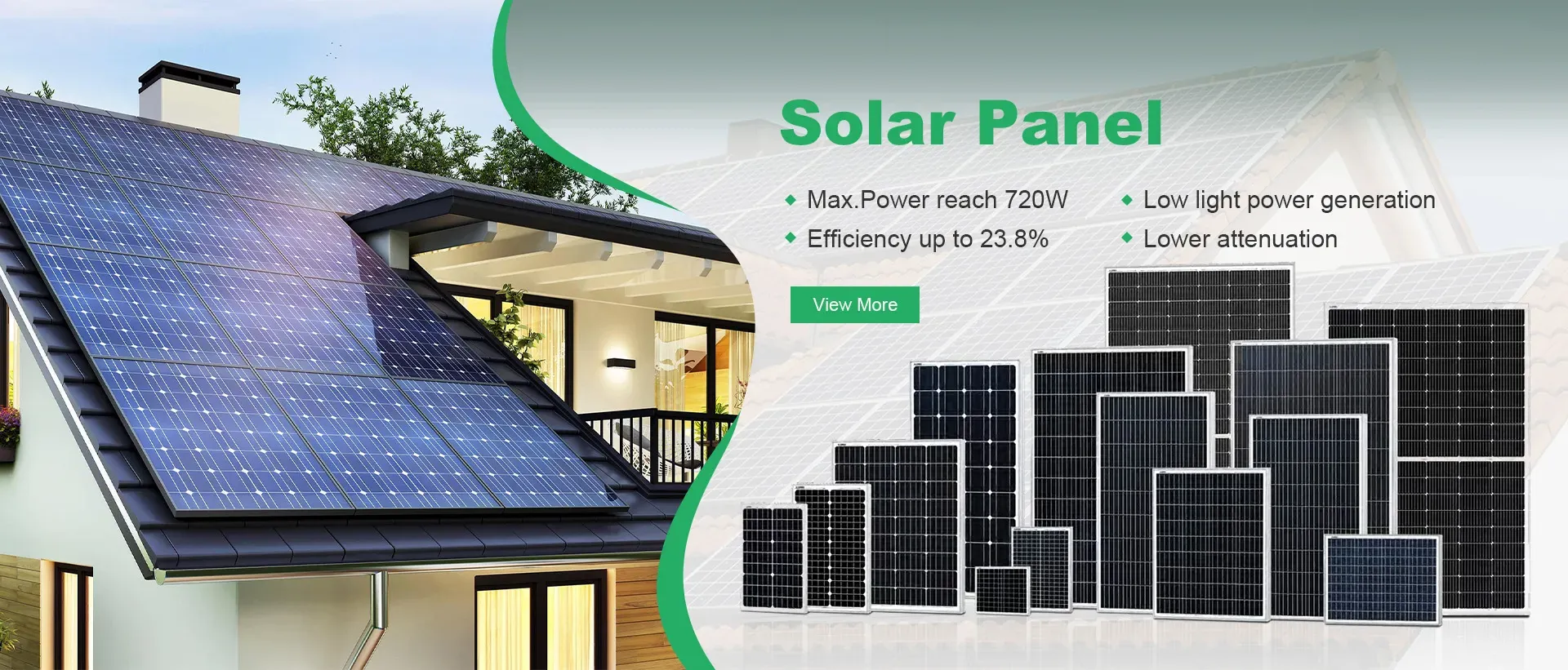solar panel efficiency cloudy day
Understanding Solar Panel Efficiency on Cloudy Days
Solar panels have become a prominent source of renewable energy, providing a sustainable solution to the growing demand for power. However, their efficiency often comes into question, particularly on cloudy days. Understanding how clouds affect solar panel performance is crucial for anyone considering investing in solar technology or those currently utilizing solar energy systems.
The Basics of Solar Panel Efficiency
Solar panels convert sunlight into electricity through a process known as the photovoltaic effect. The efficiency of a solar panel, typically expressed as a percentage, indicates how much sunlight can be converted into usable electrical energy. For example, if a solar panel has a 20% efficiency rating, it means that 20% of the sunlight it receives is converted into electricity. Factors such as the angle of the panels, the amount of sunlight available, and the quality of the solar cells all impact the overall efficiency.
The Impact of Cloud Cover
Clouds block sunlight, which can significantly reduce the amount of energy solar panels can produce. On a sunny day, solar panels receive direct sunlight, resulting in maximum efficiency. However, on a cloudy day, the situation changes. Some studies suggest that solar panels can lose between 25% to 60% of their efficiency on overcast days.
But it’s important to note that the reduction in efficiency varies based on several factors, such as the type of solar panel technology, the thickness and type of cloud cover, and how much ambient light is still available. Certain types of solar panels, such as thin-film solar cells, may perform better in diffuse light conditions compared to traditional silicon-based panels.
Diffused Light Advantage
solar panel efficiency cloudy day

Interestingly, cloudy days do not mean that solar panels stop producing energy altogether. Clouds can scatter sunlight, causing a phenomenon called diffused light. While the overall light intensity is lower, the scattered light can still offer a usable amount of energy. In fact, some studies have shown that solar panels can still capture a reasonable output during cloudy weather, especially when the clouds are patchy and allow for some direct sunlight to reach the panels.
In regions with frequent overcast days, the overall solar energy production can still be significant. Systems designed with this in mind may include features that optimize energy capture under varying light conditions. Moreover, advancements in solar technology continue to improve the performance of solar panels in less-than-ideal conditions.
Energy Storage Solutions
One of the solutions to offset the inefficiencies experienced on cloudy days is the implementation of energy storage systems, such as batteries. By storing energy produced during sunny days, homeowners can have a reserve of power to draw upon when the weather turns gray. This energy storage capacity ensures that home energy needs can be met, regardless of the fluctuations in solar panel output.
Additionally, grid-connected solar systems can sell excess energy back to the grid, providing economic benefits and creating a buffer against low production days. This interconnectedness allows for more stable energy access and can help scale back concerns over reliance on solar energy alone during cloudy or rainy conditions.
Conclusion
Solar panel efficiency on cloudy days is undoubtedly affected, but it’s not as severe as one might think. With the ability to harness diffuse light, innovative solar technologies, and energy storage solutions, solar energy remains a viable and efficient option even in less-than-ideal weather conditions. As advancements in technology continue to evolve, the efficiency of solar panels is likely to improve further, making renewable energy an increasingly feasible alternative across various climates. For anyone on the fence about solar energy due to concerns about weather limitations, it is essential to recognize the ongoing developments and the inherent resilience of solar systems in adapting to changing environmental conditions. Investing in solar panels can still yield substantial benefits, even on cloudy days.
-
Navigating Off Grid Solar Inverter: From Use Cases to Trusted PartnersNewsAug.05,2025
-
Solar Edge String Inverter: A Wholesaler’s Guide to Inverter Technology SelectionNewsAug.05,2025
-
Microinverters: Revolutionizing Solar Energy UseNewsAug.05,2025
-
Future of Monocrystalline Solar Panel Efficiency: Latest Technological AdvancesNewsAug.05,2025
-
Solar Panels for House: A Complete Guide to Residential Solar EnergyNewsAug.05,2025
-
Panel Bifacial Performance in Snow and Low-Light ConditionsNewsAug.05,2025







